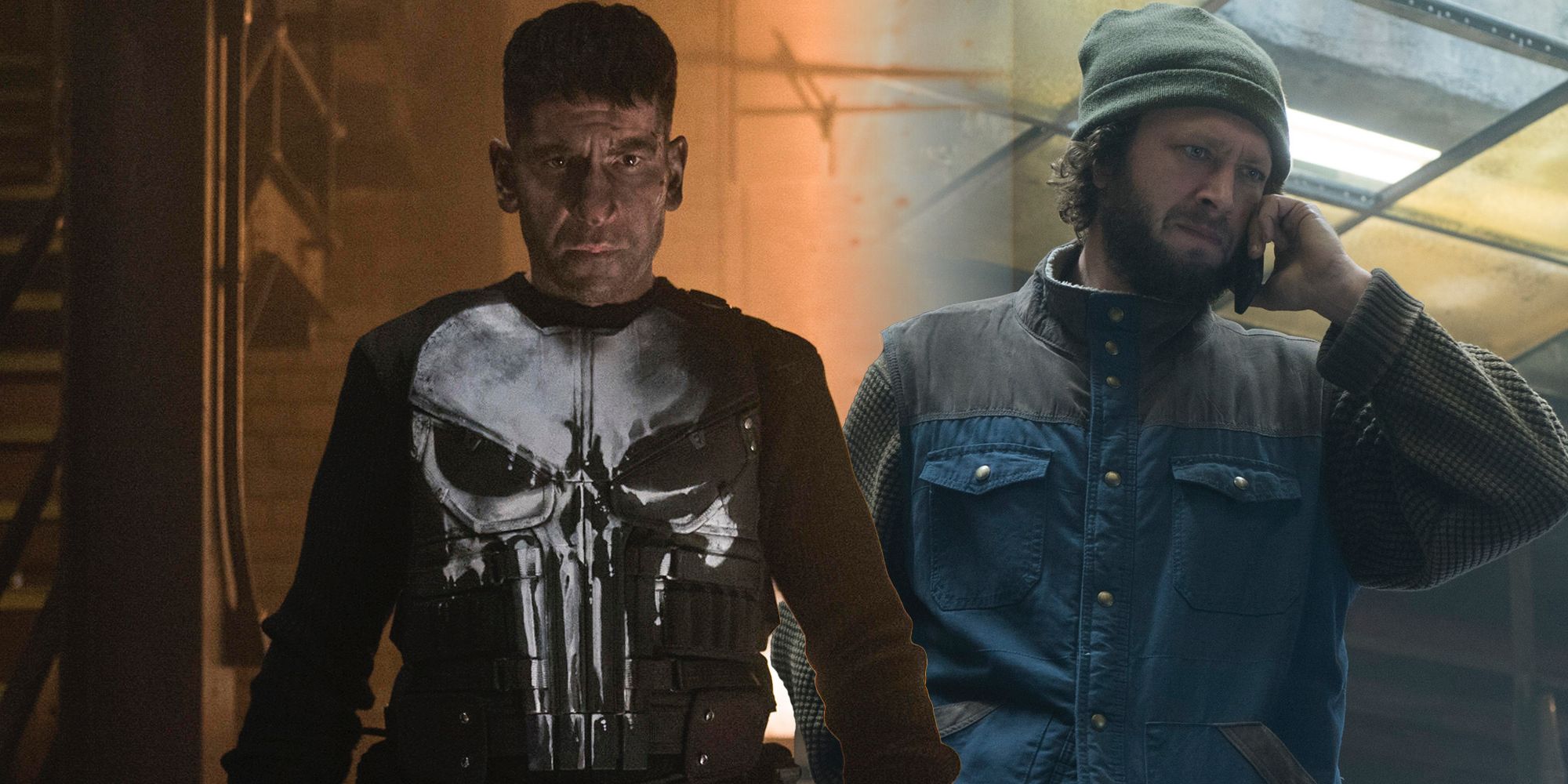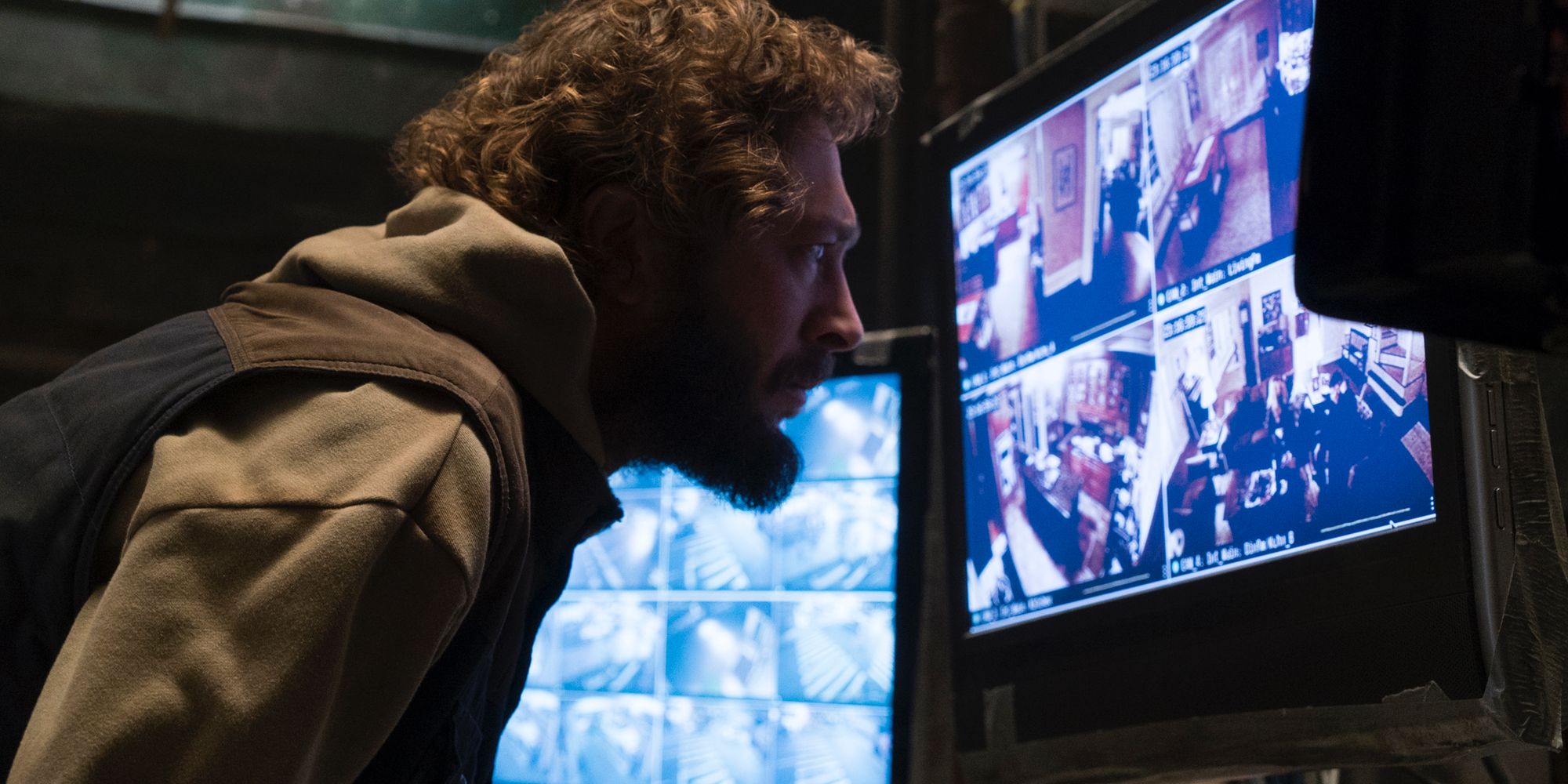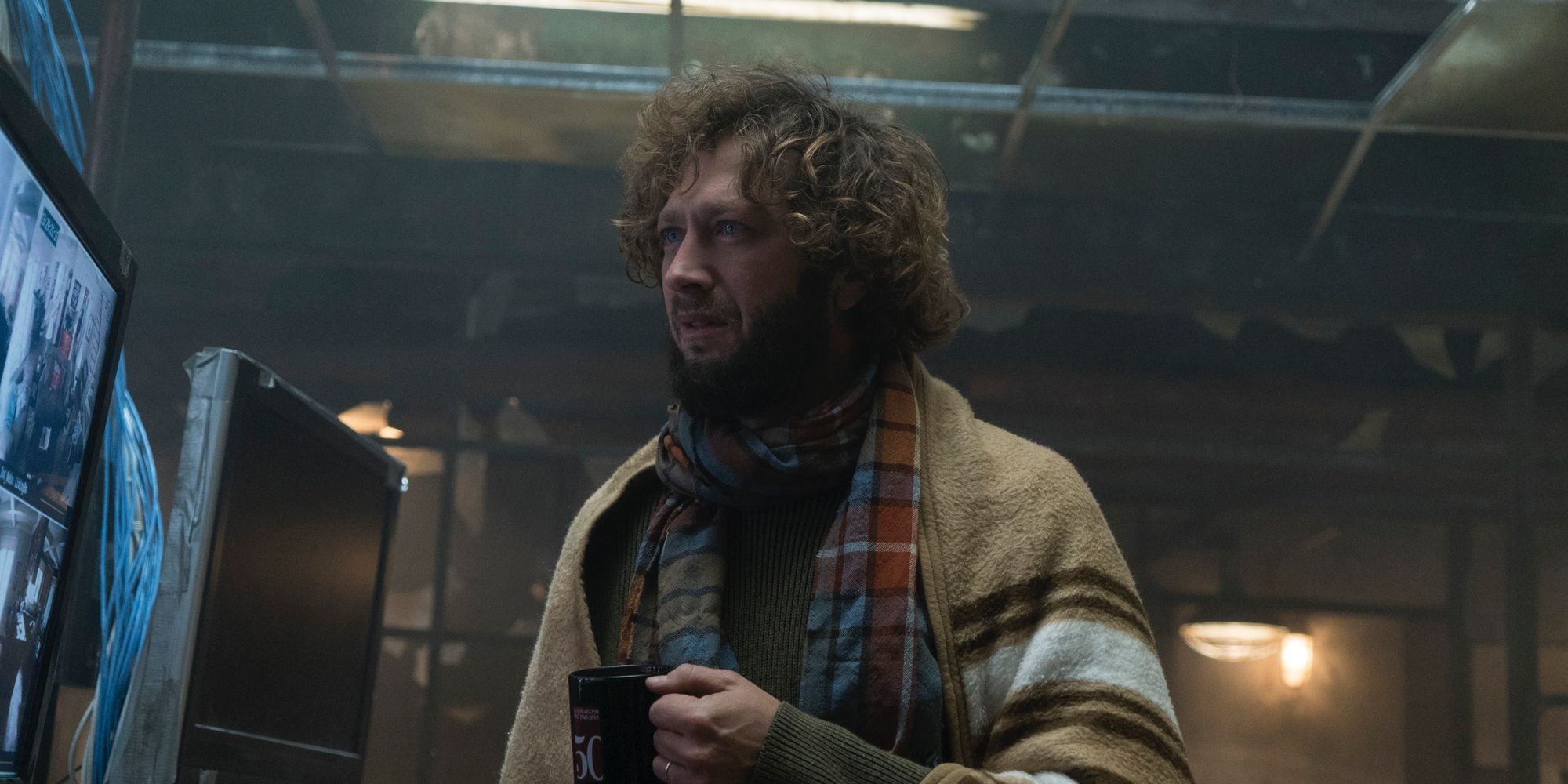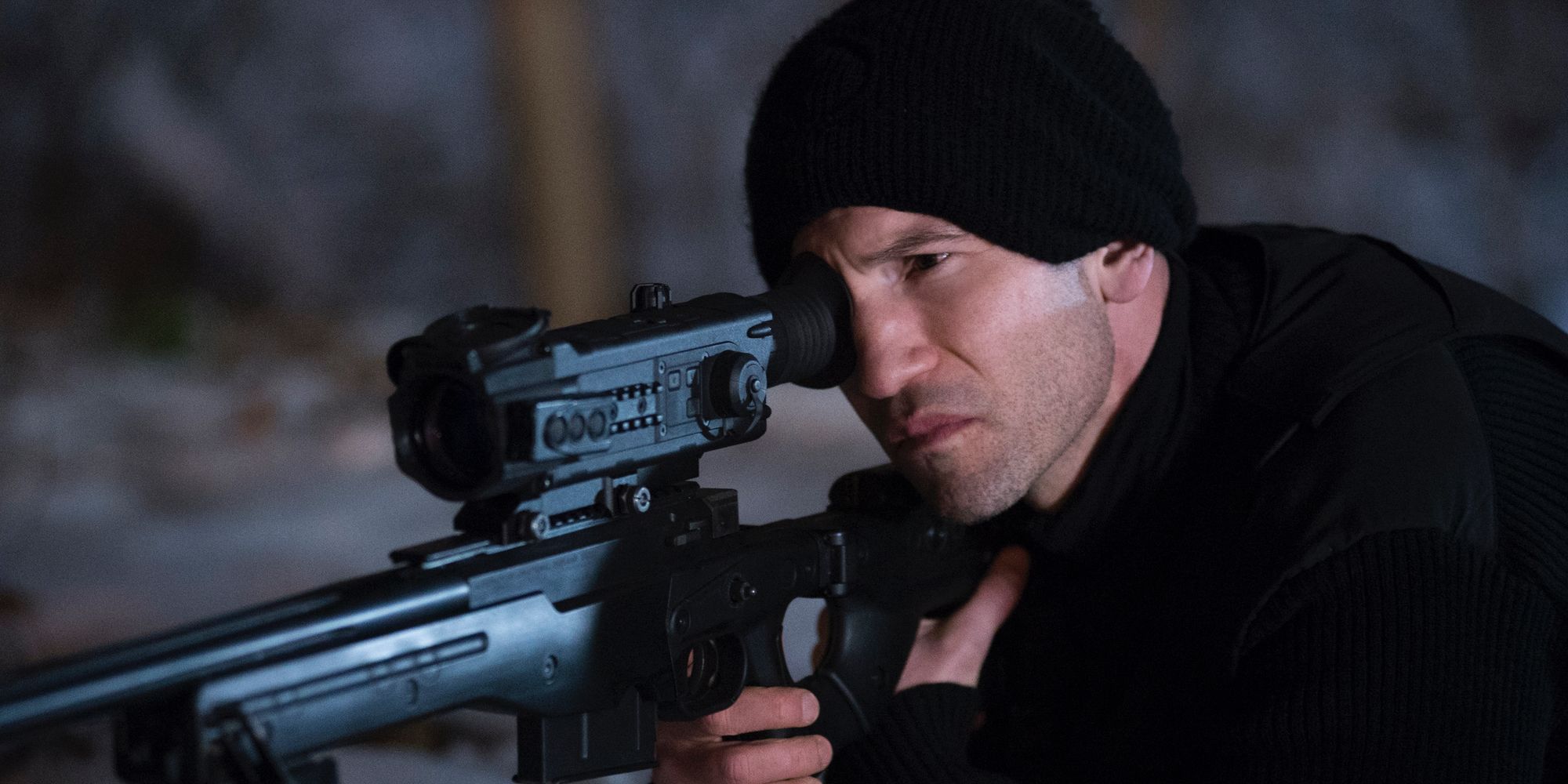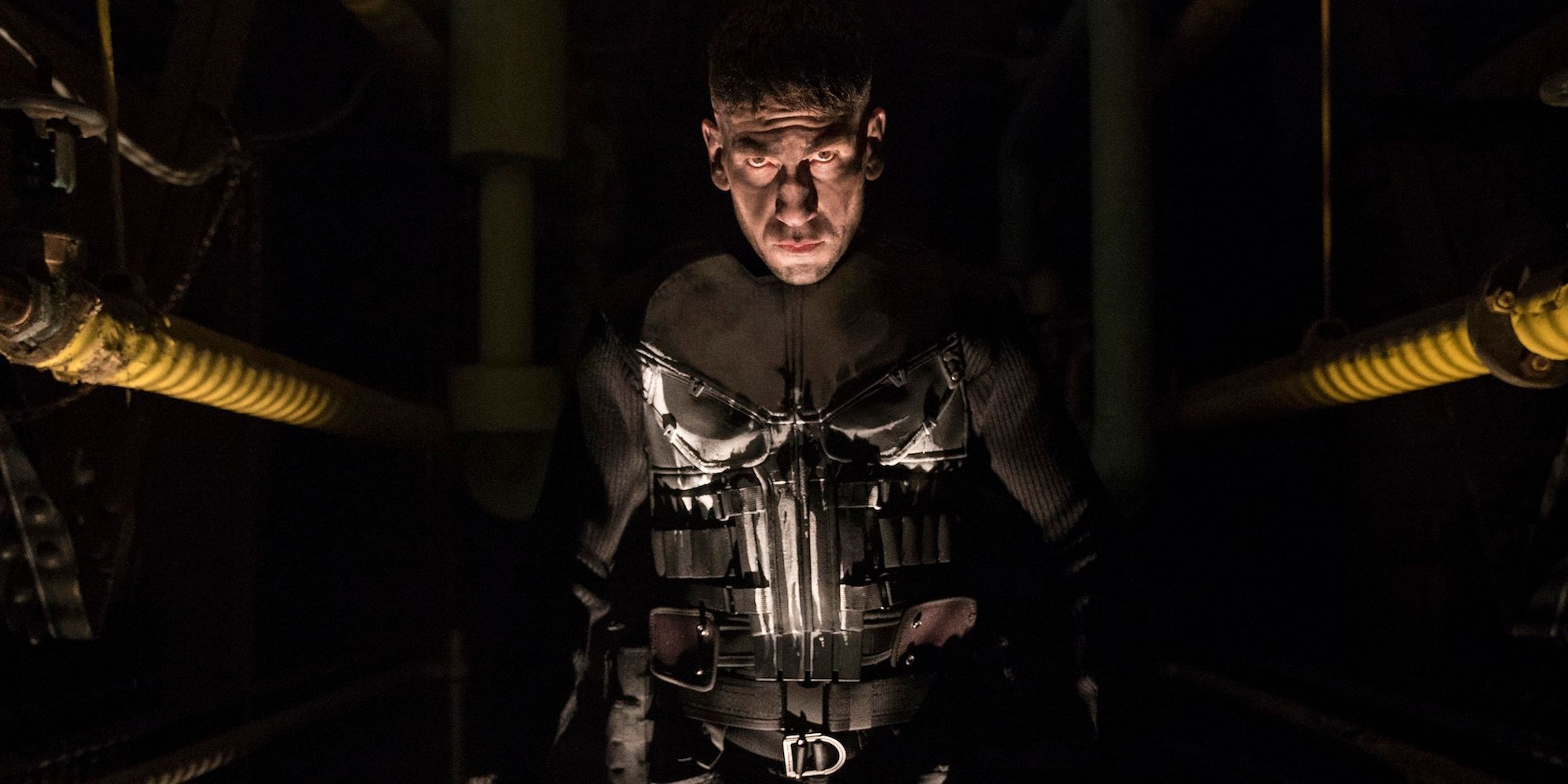Marvel's The Punisher has its faults. It's too long by half. It employs the Marvel-Netflix formula so readily you can see the blueprints of the Daredevil, Luke Cage, and Iron Fist being used as the season progress. And it struggles at times to find a truly compelling take on its title character, his situation, or adversaries, relying almost entirely on a magnetic performance from lead actor Jon Bernthal. But like the character he's playing, Bernthal isn't a one-man wrecking crew when it comes to making the show rise above its limitations. Instead The Punisher ” both the show and the character ” needs a partner in crime; it needs Ebon Moss-Bachrach's David Micro' Lieberman in order to work, making the bitter bromance between the two the best thing about the show in its first season.
David is introduced a few episodes in and his relationship with Frank is, unsurprisingly, antagonistic. Frank Castle being the kind of guy he is, it's understandably difficult for him to form new relationships, especially with guys who surreptitiously follow him to his favorite diner and call on the public telephone while his eggs get cold. It's the off-the-books military death squad equivalent of a telemarketer calling during dinner, and it gets his and David's tenuous relationship off on the wrong foot, where a small part of it stays even though the two come to rely on and care about one another as the season marches toward its bloody conclusion.
Related: Marvel's The Punisher Isn't Bad, But The Netflix Formula Is Wearing Thin
What makes the relationship entertaining and a reliable source of levity throughout the 13-episode first season is the characters' reluctance to like one another despite the precarious predicament they're in. Moreover, Bernthal and Moss-Bachrach's chemistry calls to mind memorable antagonistic buddy comedy pairings, like Nick Nolte and Eddie Murphy in 48 Hrs and Robert De Niro and Charles Grodin in Midnight Run. And it's in this unlikely pairing that The Punisher finds some of its most surprising and entertaining moments in season 1.
Unlikable Characters Call Each Other Out
The Punisher had its work cut out for it from the get go, having what essentially amounts to a mass murderer as its protagonist. Cut it any way you want, but the primary appeal of the Punisher is also his greatest limitation: he kills people, plain and simple. That sort of black and white morality and brutal vigilantism still plays to a certain degree, but asking the audience to spend 13 hours with the man pulling the trigger is a tricky request. There has to be shades of gray in there somewhere, a little nuance to make those watching want to watch more. And to series showrunner Steve Lightfoot's credit, The Punisher finds that by putting two essentially unlikable characters in a room together and making it against their best interest for them to kill one another. Essentially, the series finds a way to make a show about two people like Frank and David watchable by having them call each other out on it.
That's a big ask for a character with a shoot-first-ask-questions-later method of operation, but The Punisher manages to sell David's survival after Frank discovers his whereabouts by delivering a protracted interrogation episode. The getting-to-know-you phase of their relationship is expanded into nearly a full hour, which gives the audience a chance to see the Punisher literally kill some time (a necessary elimination considering how long the season is), but it also opens the door for the show to address its characters' faults without turning its back on them.
To that end, though their exchanges are frequently humorous and ostensibly add the levity a series like this definitely needs, Frank and David ” or the Punisher and Micro ” become something more than just a comedic diversion; they question one another just enough so that, in the case of Marvel's The Punisher, depiction doesn't equal endorsement.
A Little Therapy & Personality Adjustment
When The Punisher first begins, Frank and David are essentially dead men walking. That is, to the world at large, they are believed to be deceased. That circumstance helps keep them alive, but it also complicates things as far as interpersonal relationships go. That's fine and dandy with Frank, who begins the series in relative solitude, taking his frustrations out on a concrete wall as the bearded hipster Pete, until the actions of some goons compels him to take his frustration out on them. It's a little more complicated for David, who has a wife and two kids burdened by a loss that's built on a lie. And those complications show the degree to which isolation is a different but no less hostile force than the group of mercenaries out to kill them both.
Frank's skilled at dealing with his problems and the problems of others with fists, knives, and guns ” as he demonstrates by pulling a knife on David's contemptible son ” but the kind of detachment Frank and David experience, the kind that makes a person sit around in his bathrobe while plotting vengeance with a guy who is ready, willing, and able to œkill them all, can't be eliminated with violence. If anything, bloodshed just exacerbates the problem.
As such, like it did with Frank and David's first in-person meeting, The Punisher slows things down again to give the strange bedfellows an opportunity to examine what their life choices have cost them, and to openly pine for what they've lost. Because it's these two characters, the moment is always on the verge of becoming a physical altercation due to David's wife Sarah kissing Frank. Though it never escalates into a full-blown confrontation it does give David a chance to acknowledge his vulnerability and for Frank, who rarely shows vulnerability at all, even when there's a knife sticking out of his belly, comes as close to being emotionally unguarded as a guy like him can get.
Although the show barely even scratches the surface in terms of digging into the psyches of its characters, the scene is another strong example of how well Bernthal and Moss-Bachrach play off one another, and just how much The Punisher comes to rely on the humor they can bring as two formerly isolated guys opening up for the fist time in a long time. It's also one of the better examples of the show working to humanize two characters locked in extreme circumstances and unable to acknowledge the kind of people they are or the demons they're battling.
Working Against One Another For the Show's Benefit
Sooner or later, it was bound to happen: Frank and David's interest would diverge enough that they would come into conflict with one another again. But unlike their introduction, the two know they're on the same side; they simply have a difference of opinion as to the best way to solve their mutual problem. So when David goes behind Frank's back and contacts Agent Madani near the end of the first season, it's a bit like watching The Punisher fall into a romantic (bromantic?) comedy trope, threatening to tear the pair apart with a misunderstanding before seeing them reunited and thereby giving the relationship that had been cultivated so long througout the season a reasonably happy ending.
But the conflict did more than fulfill an obligatory break-up before the season finale; it reiterated how fundamentally different these two characters are, and how, when push comes to shove, David seeks help (as he did with Frank) while Frank focuses on how best to, again, œkill them all. The philosophical differences between the two characters can be a little hard to spot when the Punisher and Micro are clicking and the latter is acting as the eye in the sky for a guy racking up a shocking kill streak. As such, seeing evidence that either character will make choices that affect both of them, independent or regardless of the other's approval, keeps the partnership on surprisingly equal footing and prevents Micro from falling into the role of sidekick.
Honor and Loyalty Among Assholes
The Punisher is nothing if not honest about its main characters. As is mentioned in a variety of ways throughout the first season, Frank and David are, more often than not, a couple of honest to goodness bastards; guys who put their own agenda ahead of anyone else's, often to the detriment of those who matter most to them. And while the series is very dark and extremely violent ” often as a direct result of their behavior ” there is, as has been mentioned before, a strong comedic upside to Frank and David being a pair of, as the series puts it, œassholes.
The upside being that, as much damage and pain (intentional and otherwise) these two inflict on others, by virtue of being, well¦ you know, they manage to give the audience something to look forward to while they're together. Whether it's David requesting a cup of chamomile, or discussing the moose-like appendage Frank should have already been introduced to when he tied Micro to a chair, there's a concerted effort by the show to keep things light, without undermining the deadly crankiness of its title character. Two of the best moments come when Micro prepares Frank a field ration before producing a giant sandwich he made for himself. Another comes at the end when it's revealed the tech expert is sitting on a substantial sum of cash, to which Frank asks, œYou had access to money like this and made us live in that shit hole?
Whatever The Punisher's faults may be, it definitely got this partnership right and managed to make it one of the most entertaining aspects of this first season.
Next: The Punisher: Netflix's Microchip Is A Departure' From The Comics Character
The Punisher season 1 is available in its entirety on Netflix.

